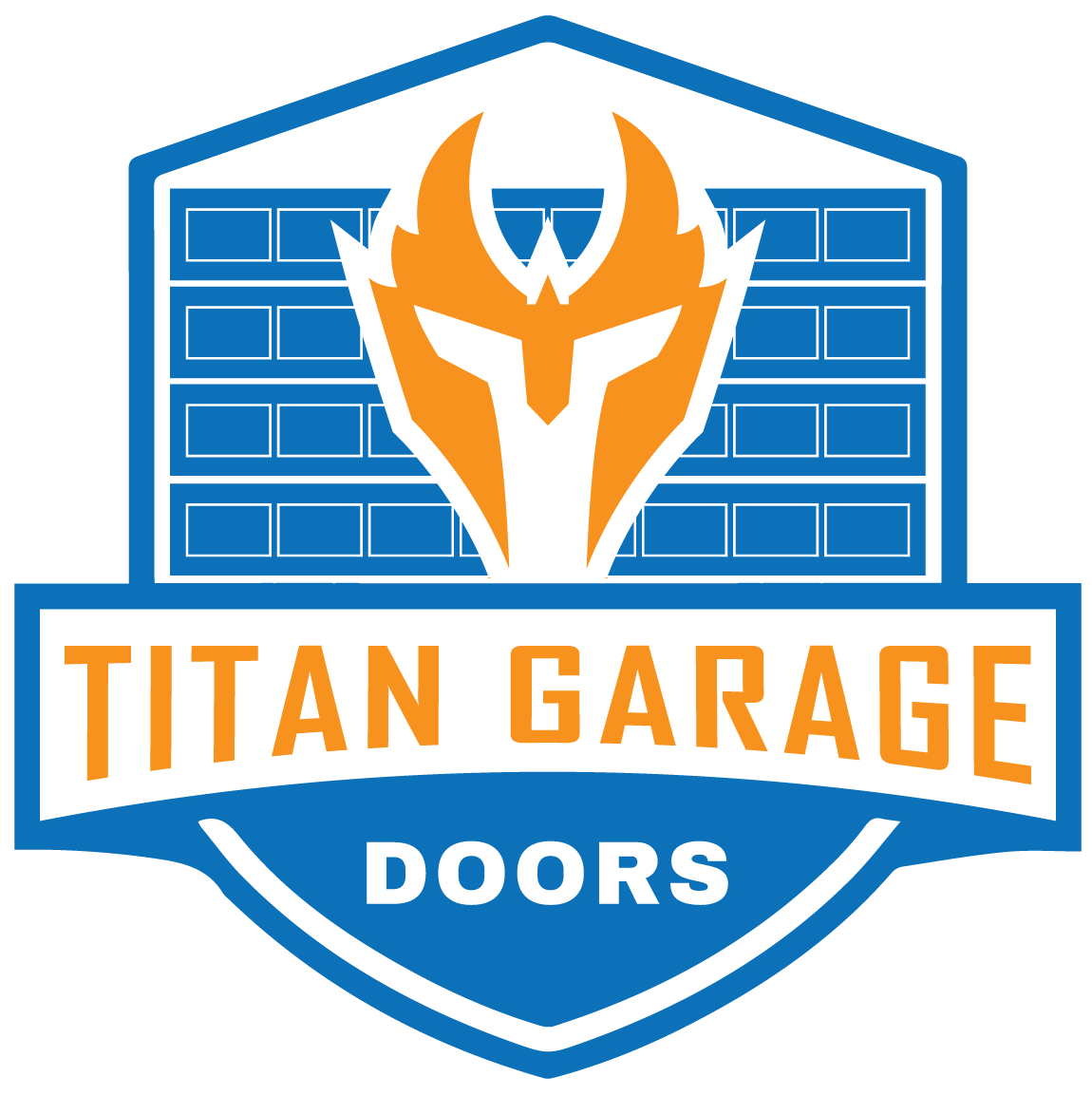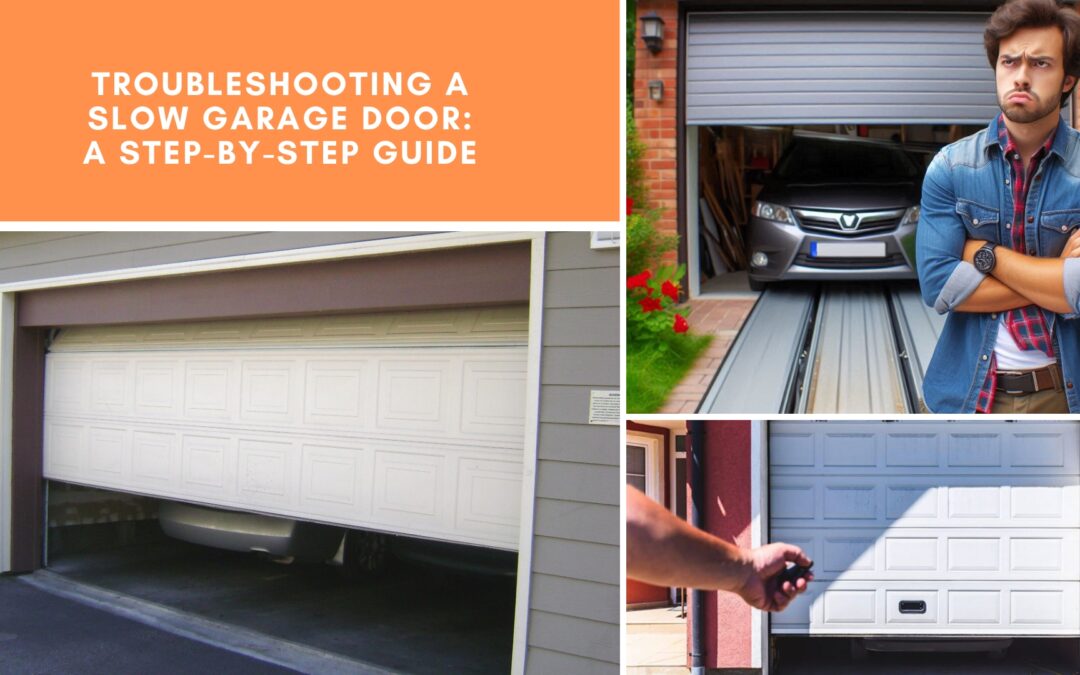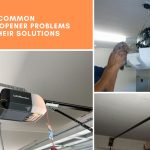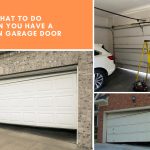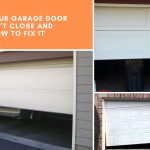Is your garage door moving slower than a sleepy turtle? That frustrating crawl can turn your morning rush into an unexpected waiting game. Most homeowners have been there: sitting in the car, coffee in hand, watching the door inch its way up while precious minutes tick by. A slow garage door is not just annoying; it often signals that something needs attention.
But here is the good news. You do not need to live with a sluggish garage door forever. In this guide, we will show you exactly how to get it back up to speed. Ready to turn that crawl back into a smooth glide? Let us dive in and fix that slow garage door together.
Understanding the Signs of a Slow Garage Door
Is your garage door taking its sweet time to open or close? A slow garage door can feel like an everyday hassle, especially when you are rushing out in the morning or trying to get inside after a long day. But how slow is too slow? Most garage doors open within 12–15 seconds. If yours is moving at a crawl, hesitating mid-way, or feels like it is struggling, it is likely a sign that something is not right. Fear not—most of the time, these problems are easy to fix. Let’s take a few straightforward steps to restore its functionality.
Step 1: Check the Power Source and Opener Settings
Is your garage door opener plugged in? It may sound too simple, but sometimes the answer to a slow garage door is right in front of us. Connect your garage door opener to a power source first. If you have had a recent power outage, try resetting the unit.
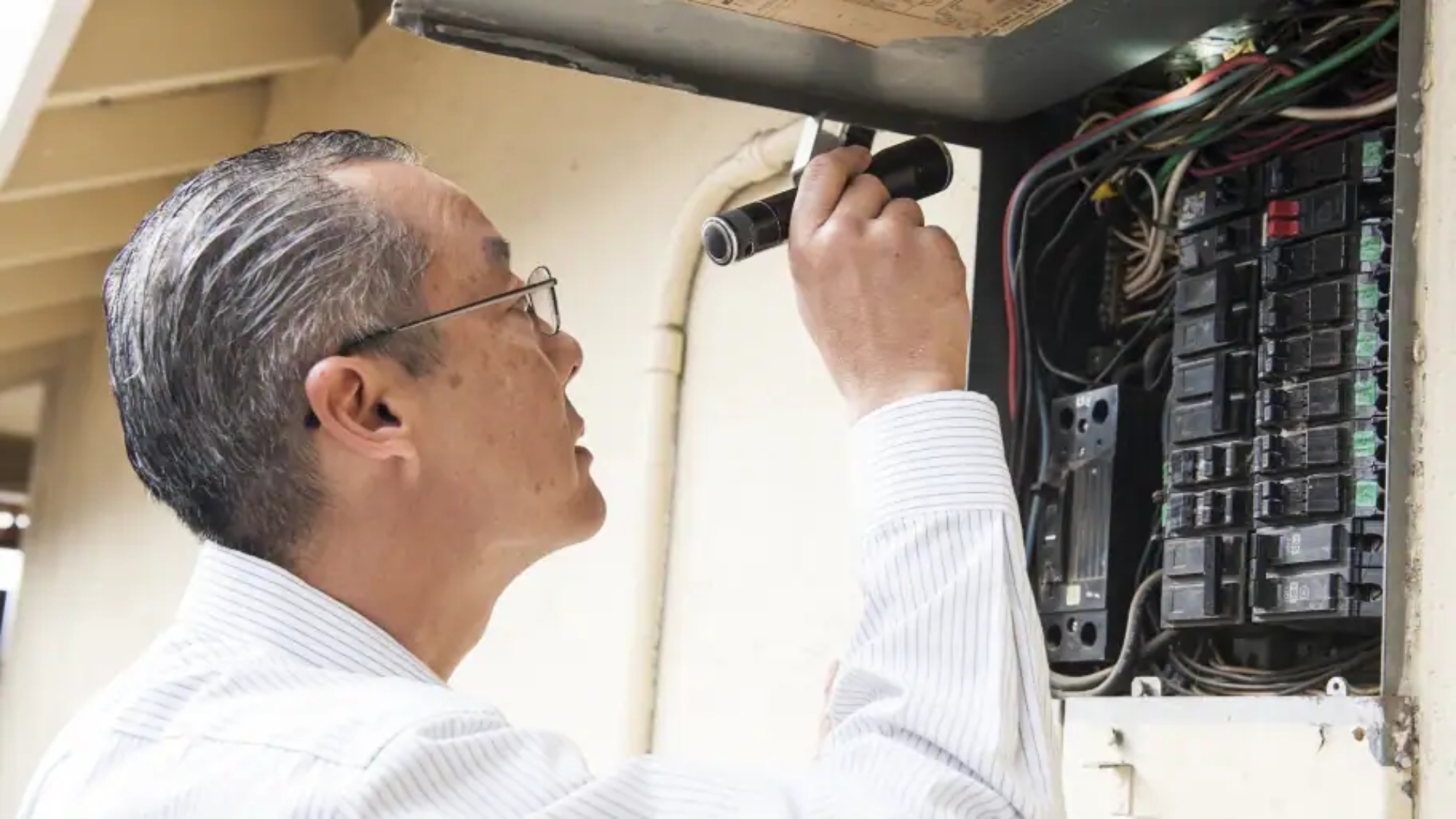
Once you have checked the power, let us look at your opener settings. Did you know that some garage door openers come with adjustable speed settings? If you have a slow door opener, it might just be a case of turning up the speed on the control panel. Check your model’s manual for instructions—it might be as simple as pressing a button.
Step 2: Lubricate Moving Garage Door Parts
Just like any other machine, a garage door has moving parts that need a little TLC to work smoothly. Often, the solution is as simple as lubrication. Think about it—without proper garage door lubrication, all of those metal parts would rub against each other, which would slow things down.
How to Properly Apply Lubricant
Not sure where to start? Here is a quick guide:
- Choose the Right Lubricant: Stick to a silicone-based spray or a lithium-based grease. Avoid WD-40; it is great for cleaning but does not provide lasting lubrication.
- Focus on Key Parts: Spray lubricant on the hinges, rollers, springs, and tracks. Make sure to avoid any plastic parts, as some lubricants can cause them to break down over time.
- Apply a Light Coat: You do not need much. A light spray is enough. If you overdo it, the excess lubricant can attract dirt and dust, making things worse.
How often should you lubricate your garage door? Aim for at least twice a year. If you are in an area with extreme weather or lots of dust, you might want to check and reapply every few months. Keeping these parts lubricated can help prevent that frustrating slow garage door issue from coming back.
Step 3: Inspect the Garage Door Tracks and Rollers
Is your garage door moving slower than usual? Often, the tracks and rollers are to blame. When dirt or debris builds up in the tracks, it can cause a slow garage door. Let us check them out.
- Look for Obstructions: First, check the tracks for dirt, leaves, or other debris. Even small stuff can slow down your garage door. Wipe the tracks clean and remove any buildup.
- Check Track Alignment and Roller Condition: Are the tracks straight? Misalignment can drag the rollers and cause a slow garage door. Look for any bends or gaps in the tracks. Also, check the rollers—worn ones can make the door move slowly. Lubricate them or replace them if needed.
With a bit of care, your tracks and rollers can keep your garage door moving at the right speed again.
Step 4: Check the Garage Door Springs
Are you wondering if those springs might be the reason behind your slow garage door? Springs are crucial in helping your door lift and lower smoothly. Worn or broken springs can significantly slow down or even prevent your garage door from moving at all. Here are a few things to look for:
- Visible wear or damage: Do the springs look stretched out, rusty, or even broken? These are clear signs that need attention.
- Loud noises: Hear any unusual creaks or pops? That could be the springs struggling to work.
- Sluggish movement: If your garage door is slow to respond, it might be because the springs are not holding up their end.
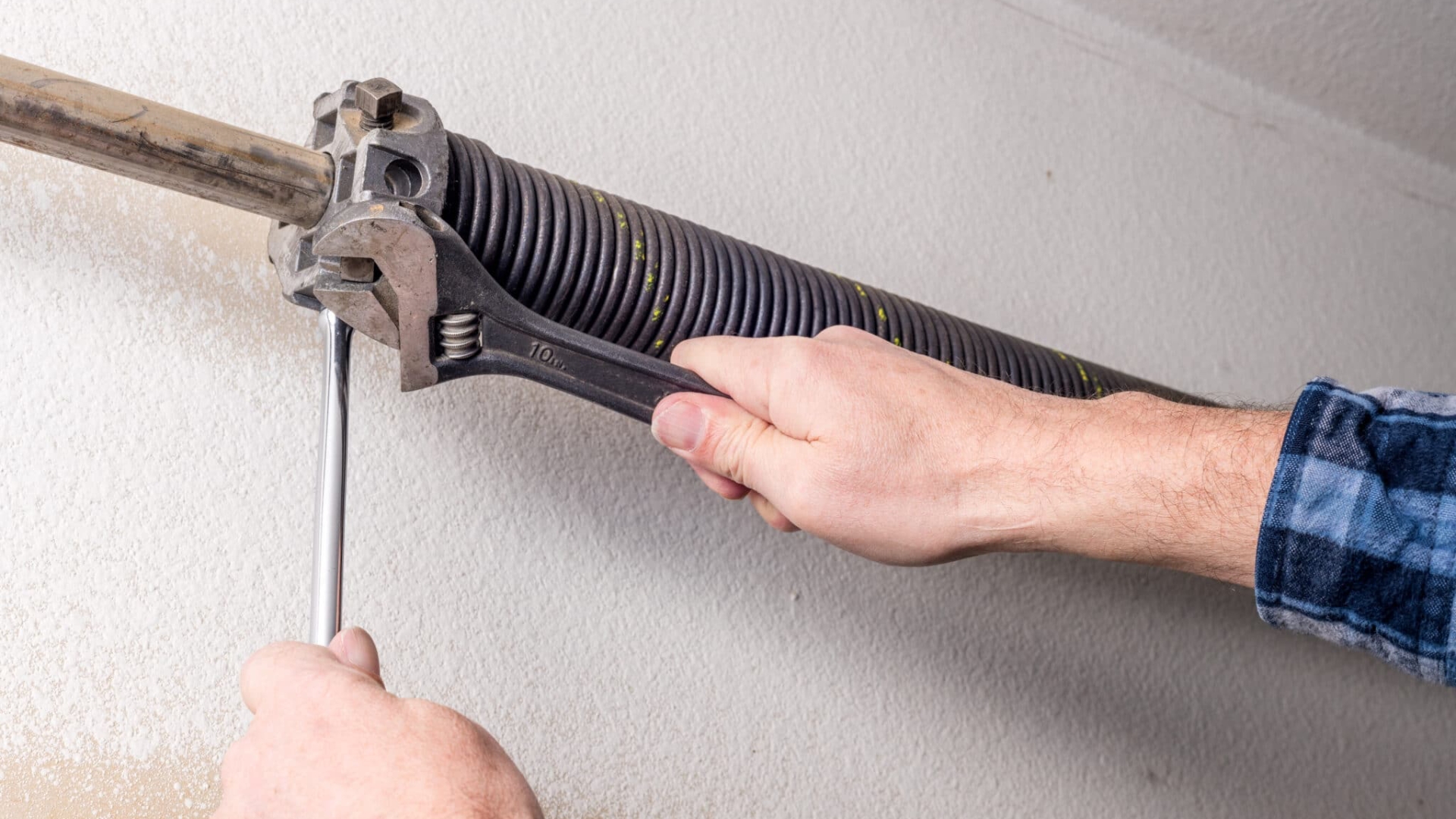
Checking the springs is one thing, but fixing or replacing them is a whole different story. The tension in garage door springs can make them dangerous to handle if you do not have the right tools or experience. So, if you think your slow garage door is due to a spring issue, it is best to call in a garage door professional in Lincoln for help.
Step 5: Inspect and Tighten Garage Door Hardware
If you are dealing with a slow garage door, it might be as simple as checking the hardware. Over time, bolts and screws can loosen, causing the door to move slowly or make strange noises. Here is how to fix it:
- Look for Loose Bolts and Screws: Start by looking at the hinges, brackets, and any other parts connected to your garage door. Are any bolts or screws loose?
- Grab a Wrench and Tighten Up: If you spot anything loose, grab your wrench and tighten it up. But do not overdo it—tightening too much can damage the parts or make the door difficult to operate. Just give it enough to hold everything in place securely.
- Listen for Any Strange Sounds: As you tighten the hardware, listen for any squeaks, rattles, or other noises. Sometimes, those little sounds are clues that something is not right. They can help you find which part might need a little extra attention.
Step 6: Test the Opener and Sensor Alignment
Are you still dealing with a slow garage door? It could be the opener or the sensors. Let us check them.
- Check the Sensors: Look at the sensors on either side of the door. Are they aligned? If the lights on the sensors are blinking or off, they might be out of line. Gently adjust them until both lights are solid. Make sure they are facing each other directly.
- Test the Opener: Press the opener button and watch the door. Does it still feel slow, or does it struggle to move? If so, the motor needs adjusting.
- Final Check: Try the door again. If it is still slow after checking the sensors and opener, it might be time to call a professional for help.
Garage Door Repair Near Me
Is your garage door opening slowly? Do not let it steal another minute of your day. Here at Titan Garage Doors Lincoln NE, we are ready to get your door back up to speed with our complete range of professional services. From thorough maintenance checks and expert repairs to spring replacements and opener servicing, we do it all. Our skilled technicians also track alignments, cable repairs, hardware updates, and safety sensor checks to ensure your garage door runs with ease. Plus, you can pay over time—because we believe in making repairs easier for you. Call us today to schedule your service.

